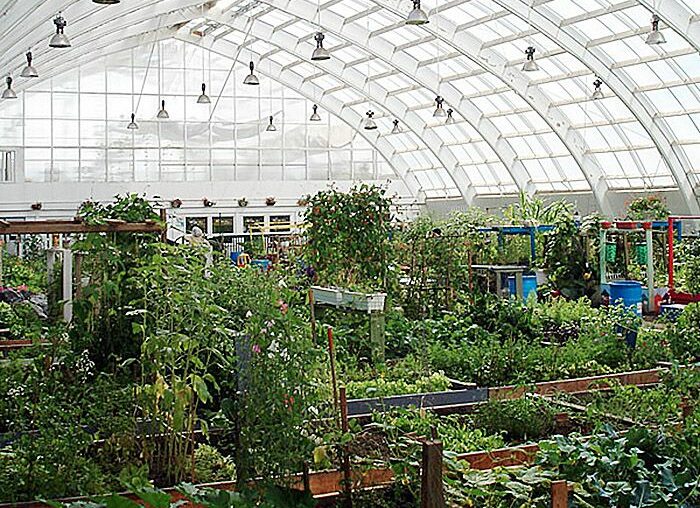
Development charges ‘closed a door’ on new greenhouses
By Pam Wright
Local Journalism Initiative Reporter
Proposed increases to water and wastewater development charges will stymie agricultural growth in Chatham-Kent, say leaders within the greenhouse industry.
The increase, recommended by C-K’s Public Utilities Commission, were presented to council in a detailed report at the March 4 council meeting. A 10-year plan that will see $590 million in capital costs was outlined. If the changes are approved, it means C-K would be able to recoup a total of $390 million of the infrastructure development by way of the new charges.
However, an increase of nearly 2,000 per cent over three years for the greenhouse industry isn’t acceptable, according to Cedarline Greenhouses president Greg Devries.
The long-time greenhouse operator was among those who made deputations at the meeting, pointing out the major contribution local greenhouse growers make to C-K’s economy.
“For every acre of greenhouse there are seven to eight jobs created,” Devries said, adding his 106-acre operation growing sweet bell peppers and tomatoes located in Chatham and outside Dresden employs more than 300 people.
Other major greenhouse operators, including Greenhill Produce and Platinum Produce, employ around 500 people, he added, noting the spinoff from C-K’s 473 acres of greenhouses has led to the creation of some 3,800 jobs, directly and indirectly.
“As an agriculturally based community, we should be supporting and driving this type of growth, not putting obstacles in the way,” DeVries told council, noting he’s had a collaborative relationship with Chatham-Kent in the past. Working with the municipality led to the Truly Green partnership with Greenfield Global, as well as the major project that saw Enbridge run natural gas to the Kent Bridge area.
“We need to stop. We need to reflect and we need to reboot this process,” Devries said. “Greenhouse growth will stop with this proposal. Let’s get back and start working together.”
In his deputation, George Dekker of Kingsville-based Mucci Farms, acknowledged the greenhouse industry is “cognizant of the need” for C-K to expand its water and wastewater services.
But he asked that Chatham-Kent reconsider the large water and development costs, noting there’s “grave concern” around the proposed charges. Dekker pointed out that after five years it will cost $8.36 per foot in development charges to put up new greenhouses as opposed to the current 36 cents.
“This is a 2,300 per cent increase in development charges for greenhouses, and as such, makes the development of greenhouses practically impossible here in Chatham-Kent,” Dekker said.
The increases translate to about $366,000 per acre cost of construction, Dekker added, based on a $1.5 million build.
Dekker said the Mucci group is looking at expanding in Chatham-Kent, but said the new charges have “basically closed a door” to the greenhouse industry.
Rob Petro, the energy, infrastructure and environment co-ordinator for the Ontario Greenhouse Vegetable Growers, also spoke to council stating the large increases will “present a chilling effect on future development.”
The clock is ticking when it comes to approving the changes, as the current bylaw expires March 25. Council heard that a new bylaw must be approved as the one in place cannot be extended. Council is expected to vote on the matter March 18.
Following that, objectors will have a 40-day window to launch appeals.
Council also heard that developments that don’t tap into the municipal water system, don’t have to pay development charges.
If development charges are not collected, the burden for new infrastructure will fall on ratepayers, according to Darren Galbraith, general manager of the C-K PUC.
“It has to be collected somewhere to pay for the infrastructure at the end of the day,” he said. “If DC’s are not collected, the water and wastewater rates will go up, along with monthly services charges,” he said.
West Kent Coun. Lauren Anderson said she could see the benefits of the charges, but doesn’t see how she can ask an elderly person on a pension to “pay double, triple water rates to accommodate this growth.
“We never planned for this growth and our infrastructure doesn’t allow it,” Anderson said. “It puts us in a difficult situation of how we afford that but also encourage it to happen.”
Anderson said she will continue to have conversations to find a solution as the local greenhouse industry is a “massive opportunity for Chatham-Kent.
“It’s a really difficult situation to be in at this time and I’m feeling uneasy about it both ways,” she said.
South Kent Coun. Anthony Ceccacci said that while he thought the proposed development charges are “extremely high” he understands both sides of the issue.
Finding a way to pay for future growth is tough. According to chief financial officer Gord Quinton, it’s hard to get funding from the provincial and federal governments for infrastructure projects, as every municipality in Ontario is vying for a slice of the same pie.
“Zero,” said Quinton. “That’s what we’re estimating to get from the upper levels of governments over the next couple decades.”
Quinton said that despite the fact Ontario’s population is estimated to double by 2050, municipalities aren’t getting any funding to assist with water and wastewater infrastructure.







I once talked to a greenhouse owner a few years back who told me the greenhouse would pay for the cost of construction in just a few years from the money it makes. They consume massive amounts of water and electricity and don’t pay immigrants decent wages. They can easily afford these costs, they just don’t want the gravy train to stop flowing.